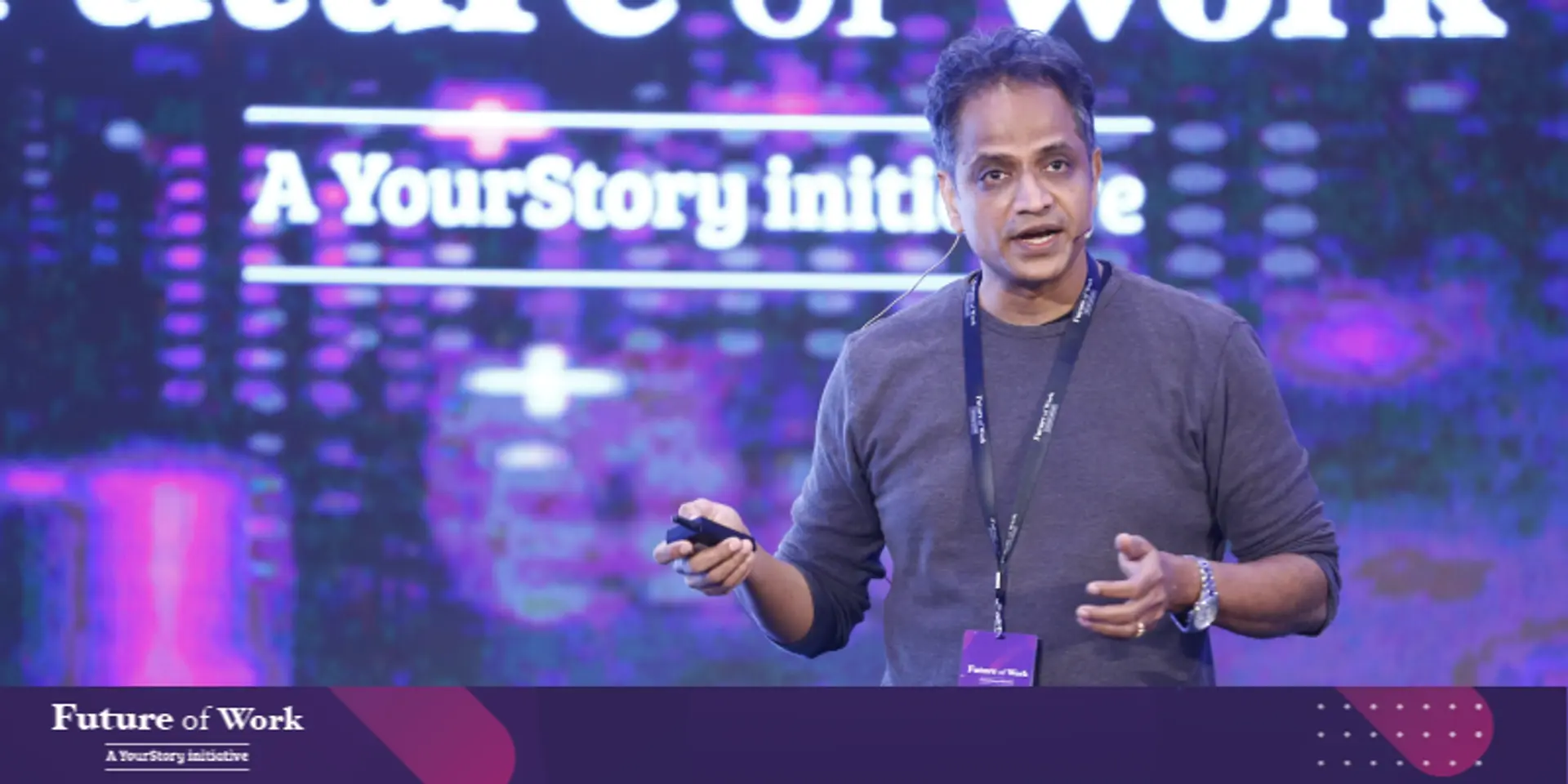Future of Work 2020: Ravi Garikipati explains why financial inclusion is a must in India
At the third edition of YourStory’s Future of Work conference, Ravi Garikipati, Founder and CEO of Davinta Financial Services, focuses on the challenges and opportunities regarding financial inclusion at the bottom of the pyramid.
Despite a spurt in economic growth, a majority of India’s population still remains unbanked. Financial inclusion is seen as a critical indicator of development, which is why startups are working to change this dynamic by offering financial services at affordable costs to the underserved.
At the third edition of YourStory’s Future of Work conference, Ravi Garikipati, Founder and CEO of Davinta Financial Services, a technology and product-focused non-banking financial company (NBFC), spoke about the challenges and opportunities regarding “financial inclusion at the bottom of the pyramid”.
The bottom of the pyramid is “aspirational”, and the advent of technology, especially smartphones and data, has changed things. Technology infrastructure like and UPI, and government initiatives such as Jan Dhan have made it easier to reach out to the unbanked.
“My foray (entrepreneurship) is mostly from the affordability point of view. I see the power of alternate data and technology being harnessed to bring down the cost of operations,” Ravi said.
This fundamentally alters how one can provide financial services to those at the bottom of the pyramid, he added.

Ravi Garikipati, Founder and CEO, Davinta Financial Services.
Services at affordable rates
Davinta Financial Services, which launched operations eight months ago, is a technology-focused umbrella NBFC for the underserved, including the rural, urban, and micro entrepreneur segments.
It is focused on three segments: livelihood entrepreneurship for rural women; the urban last mile, which includes gig economy workers; and non-entrepreneurs who have moved up the value chain and are creating jobs in the process.
Ravi highlighted that 11 percent of the global population remains unbanked, and that as many as 465 million people in India do not have access to credit.
“Financial inclusion is all about providing services such as credit, basic banking services, and insurance at affordable rates, and in a timely fashion,” he said.
The challenges to successfully address these problems are many. Organisations must have extremely low cost of operations as the ticket sizes of the loans are very small. The lack of adequate data to underwrite the loan to minimise the risk also crops up as does the time taken to disburse the credit.
Traditional banking systems cannot keep up, and that’s where fintechs like Davinta score. It provides micro ATM services for rural India; the other key focus is on lending.
Using data to manage risk
Davinta leverages data through technology, and on an average provides loans with an average ticket size ranging from Rs 45,000 to Rs 75,000 with a tenure of 12 months. It claims to disburse loans to borrowers same day.
Ravi said their entire process of on-boarding the borrower, including identification, check on credit history, underwriting, and approval or rejection of loan, could actually be done in a day.
“Seventy percent of the population that we serve has prior credit history while 30 percent are new to credit. In these cases, we look at divergent sources of data.”
Davinta looks at various sources of data such as current cash flow, incremental income, and more to understand the credit profile of each customer. It also taps into other information collected from local NGOs.
Ravi cautioned that providing credit through a low-cost model works well, but it is also important to “manage the risk associated with it”.
“We have lot of checks and balances while proactively understanding the behaviour of the consumer,” he said.
Interventions to course correct
Davinta started with a focused approach, providing credit to customers who have some cash flow in their work. It has also undertaken a dynamic approach towards underwriting of credit.
“We do frequent interventions to course correct and look at various touch points with our customers where we collect incremental data that enriches our underwriting models,” Ravi said.
Davinta is providing credit to create livelihood platforms for women by bringing all stakeholders together. This ensures that credit is given to deserving sections of the population, and that the money is used for the right purpose.
The NBFC has touched 15,000 people till now and has zero NPAs. “We have a healthy performance and would like to scale it to tens of millions,” says Ravi.
As the next part of its expansion plan, the fintech startup aims to target customers without access to affordable credit in urban areas.
Ravi said technology provided various intelligence insights and helped plan for the future. Credit does not necessarily mean a one-size-fits-all strategy now that there is opportunity now to personalise loans, he added.
“The question is: can we get to a point where we know enough of the borrower and come up with differentiated price points? We already have some models in place but it is work in progress,” Ravi said.
(Edited by Teja Lele Desai)
A big shout out to our Future of Work 2020 Sponsors: Alibaba Cloud, Larksuite, Vodafone Idea Limited, Gojek, Adobe, , , , , , , Maharashtra State Innovation Society, and GetToWork; and our Knowledge Partner: Ascend Harvard Business Review.




